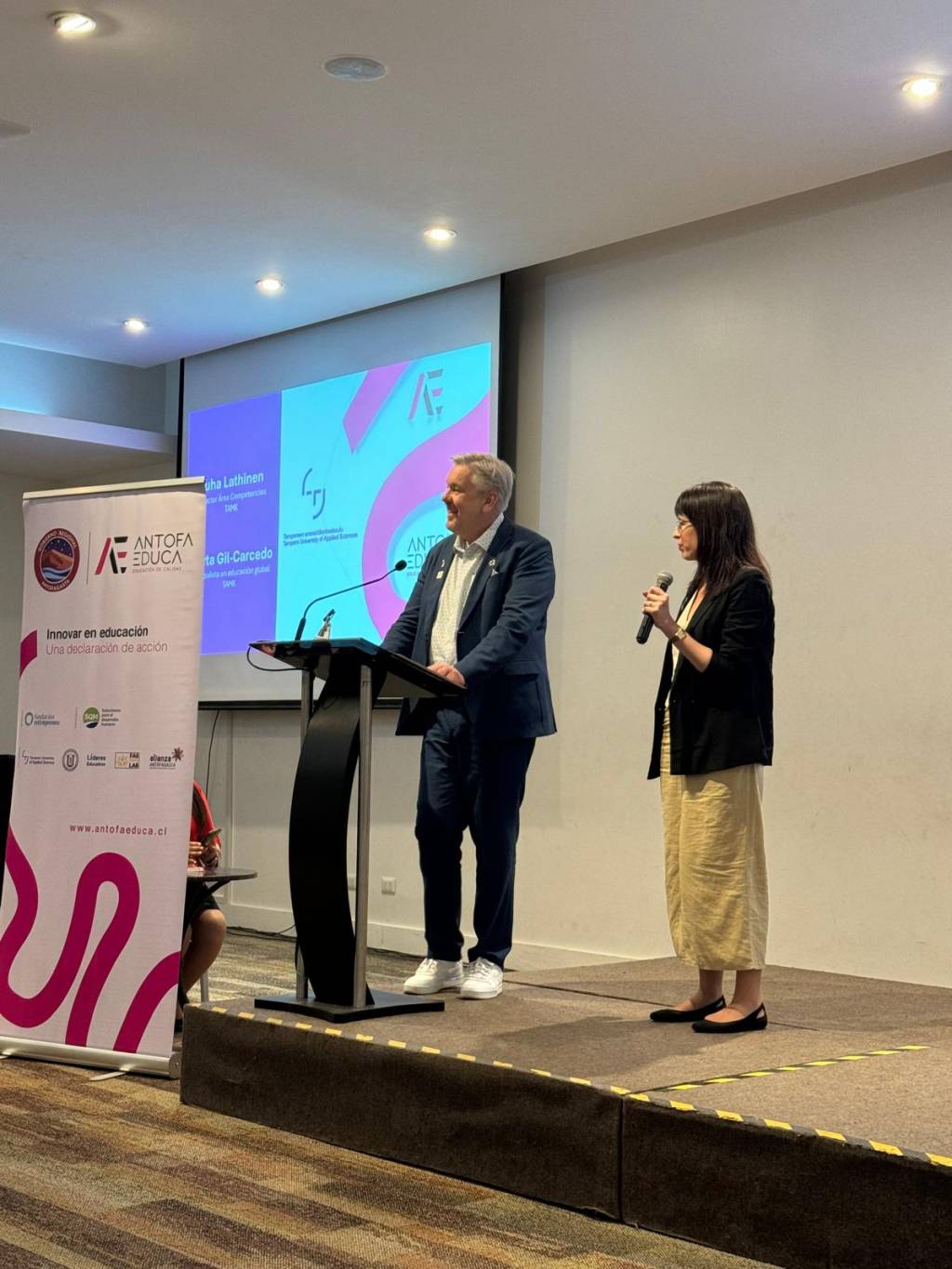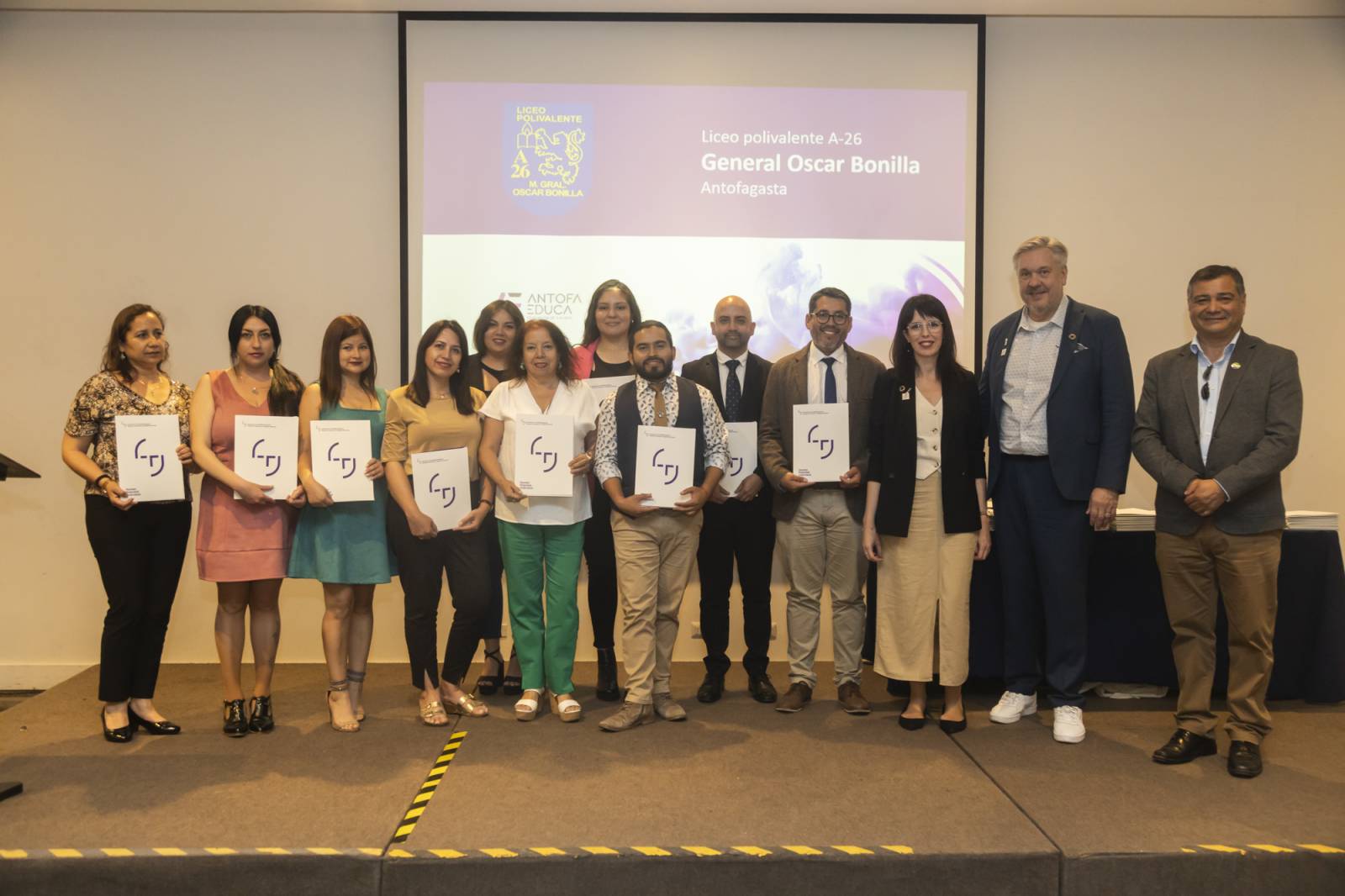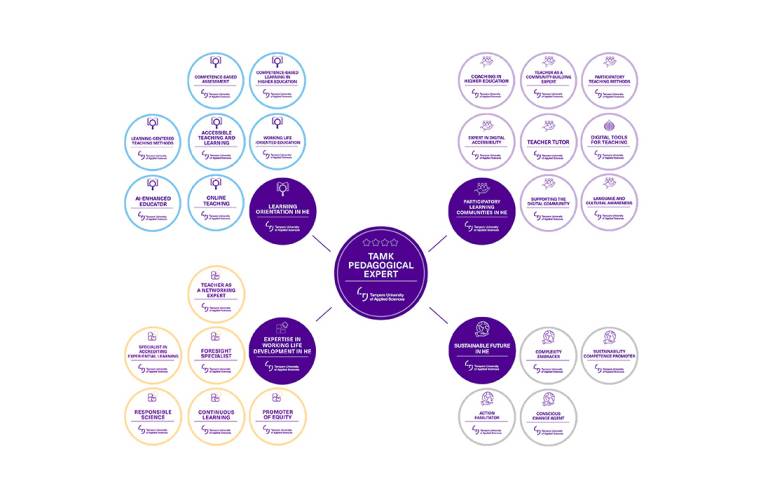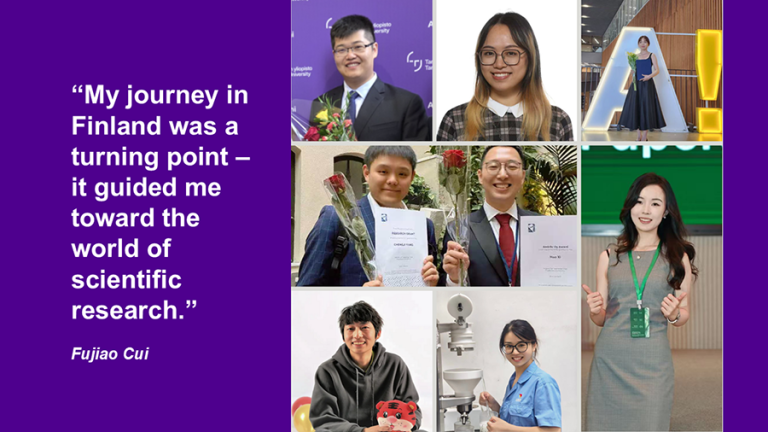The program concluded with two closing ceremonies in Chile: one in Antofagasta on November 24th and another in Calama the next day, arranged to include schools geographically distant from the regional capital.
During these events, participating schools presented their local development projects, collaboratively designed and implemented by teachers enrolled in the Diploma in Pedagogical Innovation in the Classroom, educational leaders from the Diploma in Pedagogical Leadership, and the students themselves. These projects applied the knowledge and skills gained during training sessions led by TAMK experts, resulting in impactful pedagogical innovations. Highlights included:
- The implementation of flexible grouping to enhance teaching in language and mathematics.
- Entrepreneurship projects combining the use of digital tools, local heritage appreciation, and sustainability.
- Strategies to improve school coexistence and the well-being of students and teachers.
- Repurposing of school environments to foster better learning spaces and create areas that enable collaboration and teamwork among teachers.
- The creation of STEAM classrooms to support science, technology, engineering, arts, and mathematics education.
Juha Lahtinen, Head of Competence Area in Pedagogical Innovations and Culture at TAMK, reflected on the journey, sharing his admiration: “The commitment of the principals and teachers to development was truly remarkable. I hope that the enthusiasm for development does not diminish, but rather that AntofaEDUCA was more the beginning of the development work than a completed process. It is truly wonderful to be part of this journey.”

The seminars also showcased the results of research conducted collaboratively by Jiri Vilppola from TAMK, Cristian Celedón and Alejandro Proestakis from the Universidad Católica del Norte (UCN), and Daniela Pessoa from the Pontificia Universidad Católica de Chile (UC Chile). The study reflected the participants’ perceived changes, highlighting the transformative journey experienced by both educational leaders and teachers throughout the program.
As Jiri Vilppola explained, “For both leaders and teachers, the results of the project were very positive. Leaders highlighted a significant increase in collaborative work, new competencies in change leadership, and leading the school’s digital strategy. Teachers experienced a new level of critical reflection, as well as modifications to their teaching philosophy and practice. This led to better classroom management and student engagement.”
At both ceremonies, participants received their certificates of completion. These were presented by TAMK representatives Juha Lahtinen and Marta Gil-Carcedo, Customer Relations Specialist for Latin America and the Caribbean at Tree – Global Education.
Marta Gil-Carcedo expressed her pride in the participants’ accomplishments: “After two years of training, it has been truly inspiring to witness firsthand the results achieved by the participants as they applied the strategies learned during TAMK’s online training sessions in a practical and meaningful way within their own contexts. We are incredibly proud of what they have accomplished and eager to see how they will continue driving change in their institutions.”
Attending also from Finland was Virpi Heinonen, Head of Export and Competence Acquisition at Tredu. Virpi, a co-founder of the project during her tenure at TAMK, will continue her involvement as the next phase expands to include more vocational schools in the region, with Tredu’s support.
Local authorities attended the seminars to learn about the project’s outcomes. They expressed surprise and enthusiasm for the results achieved and unanimously agreed on the program’s significant relevance. They recognised AntofaEDUCA as a key contribution to educational improvement in the region, positively impacting the well-being of both professionals and students.
AntofaEDUCA was initially conceived in 2022 as a 10-year program designed to impact all schools in the region and drive educational reform in Antofagasta. The 2023-2024 cycle marked the program’s first phase. Our Chilean partners have already submitted plans for the second phase, which is set to begin in March 2025.
Reflecting on the progress made, the ongoing efforts of teachers, leaders, and schools involved in this transformative journey will continue to drive change. The pedagogical strategies and practices developed through AntofaEDUCA are set to shape the future of education in Antofagasta, and the continued growth and success of the program in the years ahead will build on these foundational achievements.
Text: Marta Gil-Carcedo
Pictures: Magaly Visedo





